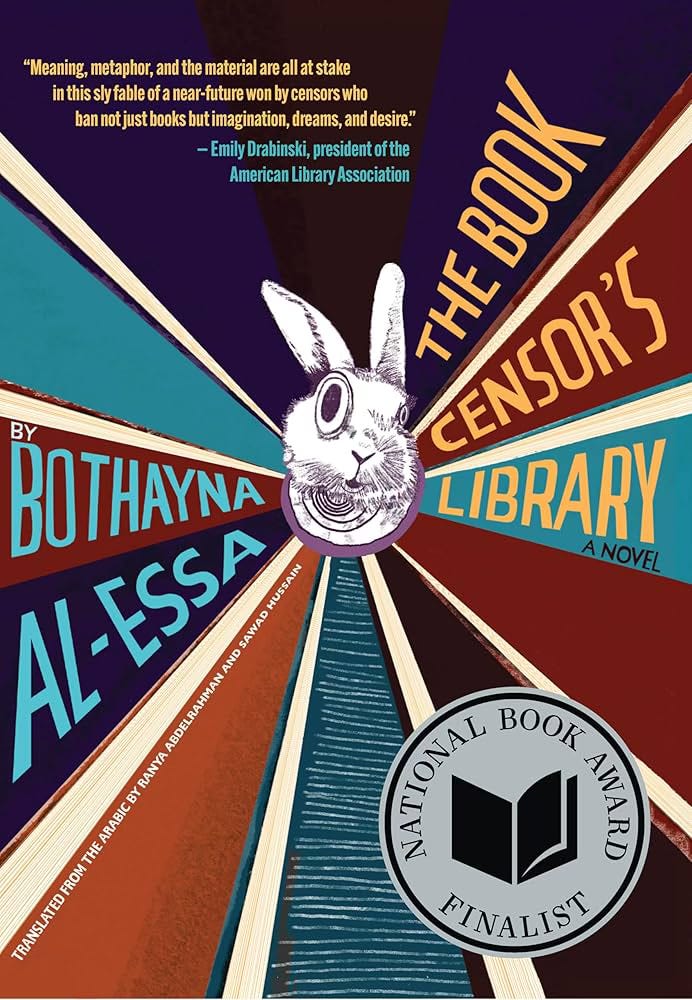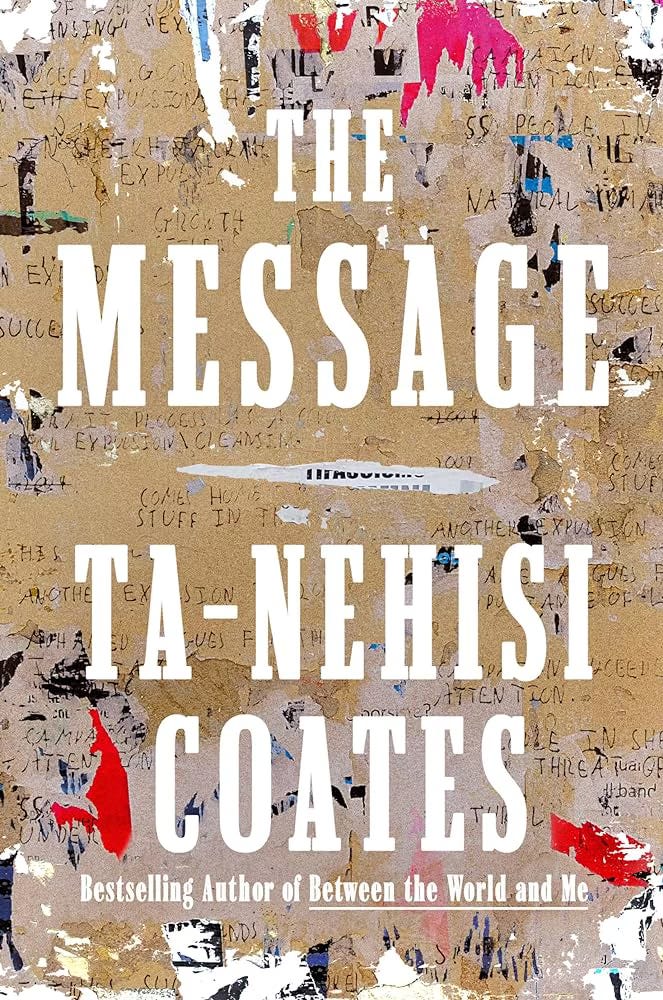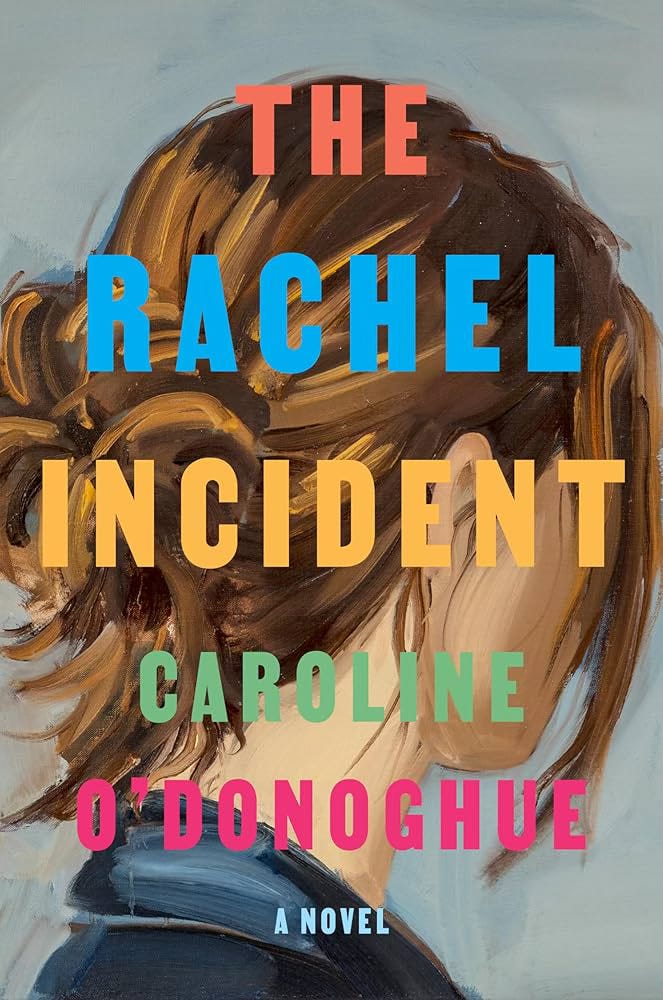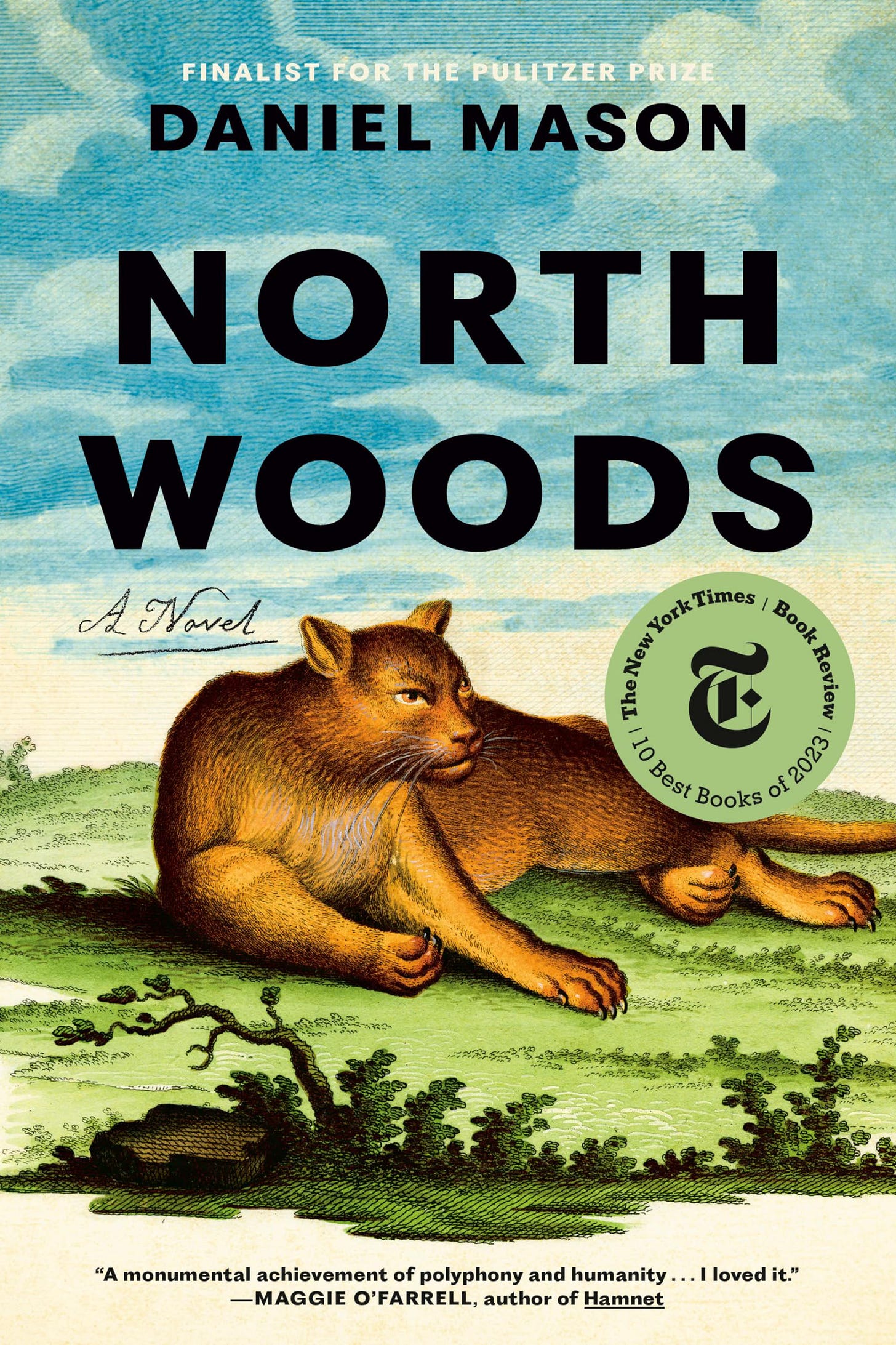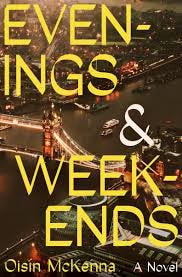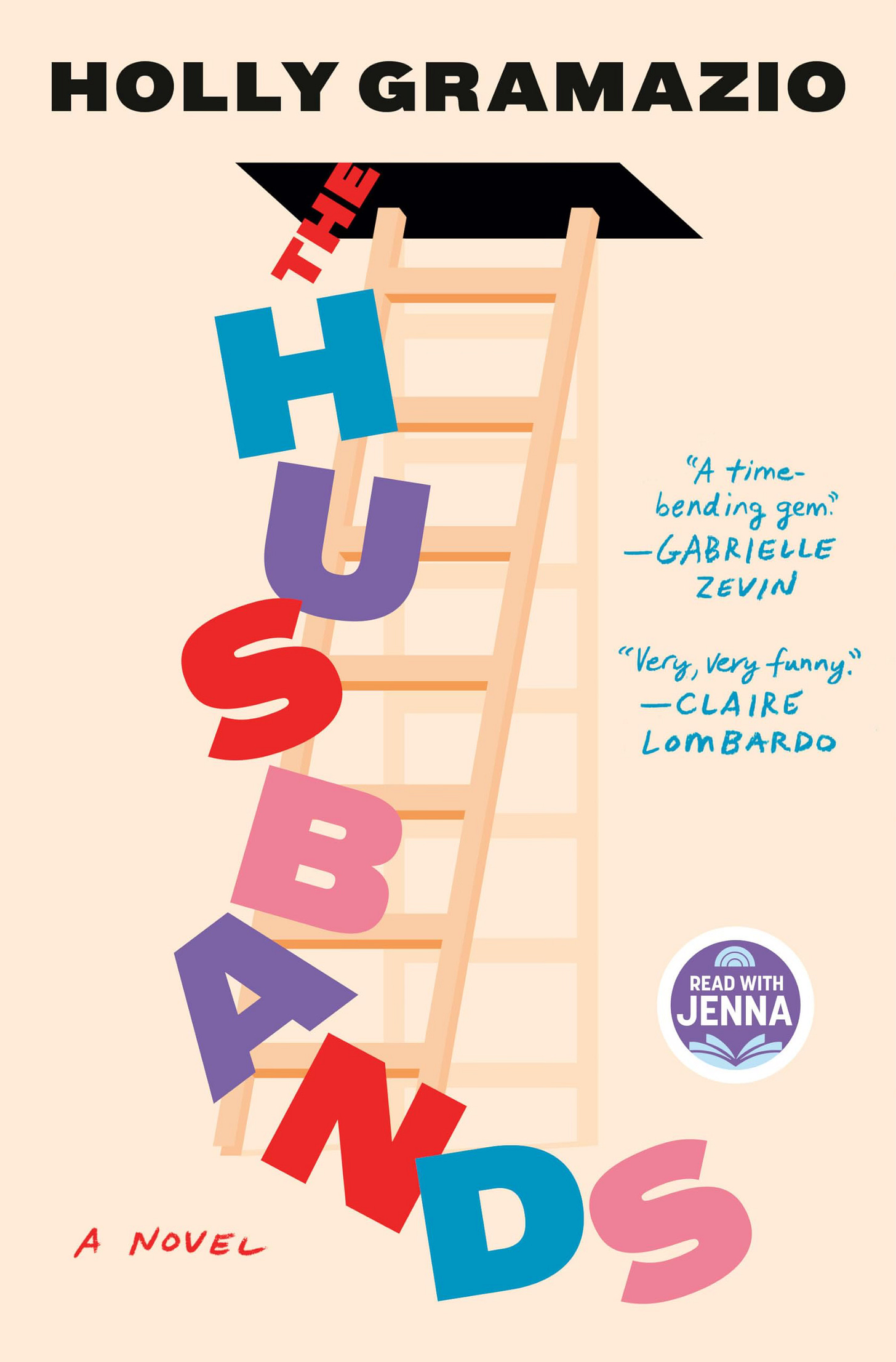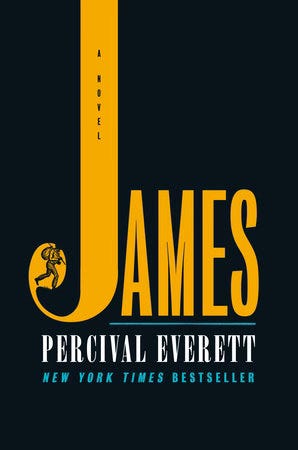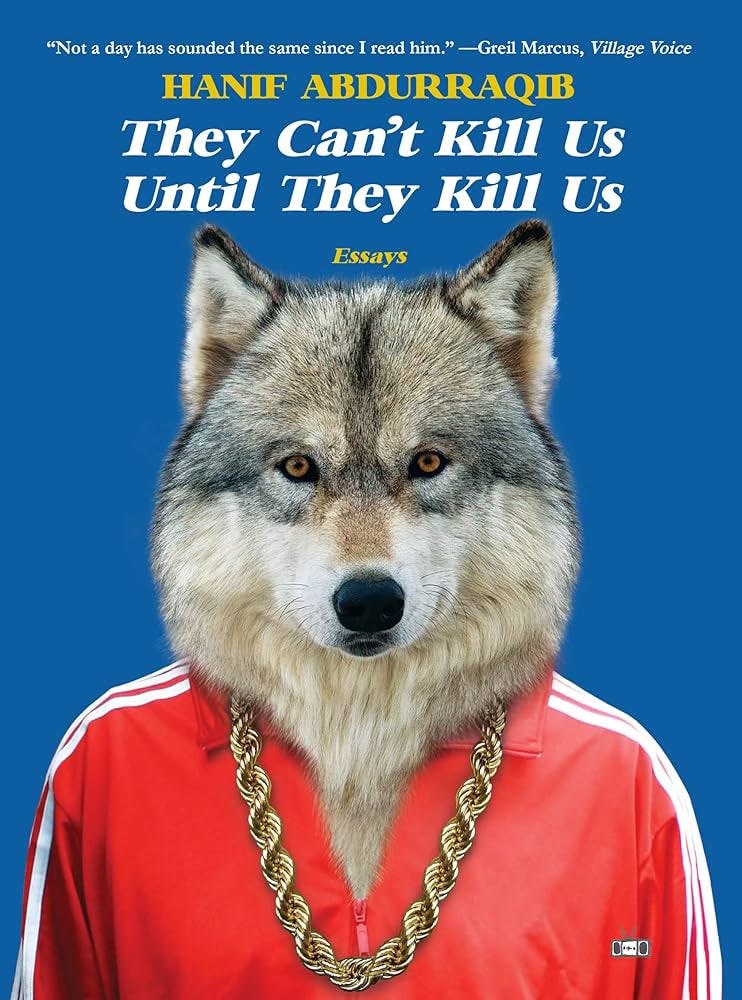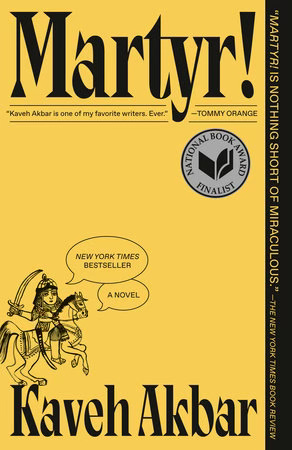If this is being opened via email, I would recommend reading this newsletter in an internet browser or in the Substack app, as it’s too long and might get truncated.
Disclaimer: This contains affiliate links to Bookshop.org, where I will earn a commission from qualifying purchases (at no additional cost to you).
This year I will have read 105 books—holy shit—and here are my Top 10. Looking at this list, I think it’s objectively stronger than my favorites from 2023, but it felt like it was harder to find my best-of-the-best this year. The year started strong and ended strong, with most of the summer months a slow simmer. I don’t think it was a bad reading year at all, but it’s hard to feel like this was ‘better’ than last. I think I’ve settled on: I was more enthusiastic for 2023’s Top 10, but 2024’s Top 10 is the best example of my reading taste (there are a few books on this list that feel like they’ll be on everyone’s list—rightfully so).
Themes prevalent on this list are: existential wonderings, critical analysis of the systems we’re currently in, interconnected casts and the impact we have on others, moments of magical realism, sharp and biting humor, and extraordinary humanity within in the seemingly mundane. These are all books I would want to talk about with a friend over coffee, which is one of my favorite takeaways and informal ratings. How long I want to yap = how much I loved.
Some quick stats:
I did not have a female American author in my Top 10.
For author genders: 6 men, 4 women, and 0 non-binary or trans authors (to my knowledge).
For additional author diversity:
It was an even 50/50 split between BIPOC and white.
There’s only 1 (to my knowledge) queer author on this list, but there are 3 queer stories.
I have no knowledge of disability status for any of these authors (they are either able-bodied or have not publicly disclosed their disability; please correct me if I’m wrong).
There’s 1 translated fiction and 2 nonfiction.
Irish writers reigned internationally, with 3 making my list.
There were 7 frontlist titles, 1 backlist title, and 2 backlist titles from 2023 that had their paperback copies released this year.
Of publishers represented, Penguin Random House dominated with 7 titles. Of the remaining three: 2 were from Indie publishers and 1 was from Hachette.
Honorable Mentions:
There Are Rivers in the Sky by Elif Shafak *gifted by Knopf
I also want to make a note that while some titles were gifted by publishers, I am not sponsored or required to talk about any of them and I specifically requested every title that was gifted.
10. The Book Censor’s Library by Bothayna Al-Essa
Translated from the Arabic by Sawad Hussain and Ranya Abdelrahman
Restless Books; Thank you to the National Book Foundation for the gifted copy.
Of all the books I’ve read this year, this is the one I would urge people to read because it’s the most underrated on this list. It’s also one of the most urgent, creative, unforgettable, and boundary-pushing narratives I came across.
In this fever-dream, dystopian and seemingly near-future, our main character is a Book Censor whose job is to read and ban books for the authoritarian government. Along the way, he starts to gain intellectual awareness through the allegories of some of the most ‘dangerous’ material—Zorba the Greek, Alice in Wonderland, 1984, Pinocchio, Fahrenheit 451—and wonders whether or not he truly understands his reality. We, along with the Book Censor, question those in charge and the systems in place—who gets to make the rules and why—and the action we choose to take: passive submission, aiding suppression, or exposing flaws in the system to promote acts of rebellion. This is not a story to leave me anytime soon.
I’m unsurprised by the necessity of literature themes prevalent in translated fiction, and it’s refreshing amongst an over-saturated, predictable, American publishing landscape (I mean this as a generalization, of course there’s still creativity here stateside).
Please read trigger warnings because (no spoiler) part of the ending is harrowing and devastating.
9. Ordinary Human Failings by Megan Nolan
Little, Brown and Company (Hachette)
Following an Irish family living in London who suddenly find themselves in the middle of a criminal investigation, we slowly learn about their individual lives and family dynamics. And not only do I love the title of this book, but I love it as the concept that permeates throughout the story: ordinary humans and their ordinary failings.
If you want excellent character work, this is the book for you. And for how short it is, the depth achieved is all the more impressive. Everyone felt authentic and well thought-out, making for a family saga you wanted to hear more about. It was tender, yet unflinching, when observing the human condition. Just as the pandemic is what brings the characters together in Tom Lake, so does the true crime element in this novel. It gently guides the story along, rather than the crime itself being the primary focus. Just don’t expect some major whodunnit reveal at the end.
My only main criticism is that I didn’t like the POV of the slimy detective, though I can appreciate the larger conversations that can be had about his selfish (and heartless, IMO) ambition. I feel like this is what The Bee Sting wishes it could be. Also, it should have been shortlisted for the Women’s Prize.
8. The Message by Ta-Nehisi Coates
One World (Penguin Random House)
Accessible, angering, urgent, reflective—I can’t recommend this enough. Told in four essays originally meant as an assignment completed for his former students, Coates takes us across the world to shed more light on cyclical, generational challenges and catastrophes—ranging from book bans in America (particularly in the South) and the ongoing genocide in Palestine.
I think what I like so much about this novel is that it’s not trying to reinvent the wheel. But rather, through travel testimonials, it serves as a reminder of the things we already know—the action to take and the caution to remain in. Also, I would highly recommend listening to the audiobook as Coates himself narrates it, but I would also recommend getting a physical copy to annotate.
7. The Rachel Incident by Caroline O’Donoghue
Vintage (Penguin Random House); Thank you for the gifted copy.
One of the buzziest books of last year—I knew I needed to wait and read it when the time felt right. And I’m happy to report that it was the right decision. This wasn’t exactly the campy, messy romp I thought it would be, but rather, it was truthful in the mess we experience alongside the characters. At its core, this is about Rachel and her closeted roommate, James, as they begin complicated, evolving relationships—platonic, romantic, academic, professional—with a married couple. As expected, scandals ensue.
Again, Irish writers just get it. They put imperfections under a microscope to where it’s uncomfortable AND understandable. They humanize characters by putting flaws on full display, and even if you don’t agree with a decision a character makes, you don’t know if you would have (or could have) done anything differently. That’s how you’ll feel when you get to thee Rachel Incident.
While I wish there were some minor plot holes filled in within the last 10%, I absolutely loved the tender ending and how the major points concluded. It also was a little slow to start (I did recruit the help of its audiobook at times), but I could easily overlook it because of the compelling storylines and character arcs.
6. North Woods by Daniel Mason
Random House (Penguin Random House)
Usually when we follow an interconnected cast, the characters themselves all know (or are related to) each other in some form or another, but in this spin on that narrative, we are focused on a cabin in the New England woods—observing the residence and its residents via multiple, traditional and non-traditional narrative structures and POVs. Some families stay for a long time, some are merely solicitors, some aren’t even human.
Atmospheric, enchanting, immersive, wonderful—I’ve yet to find someone who hasn’t liked this book. There were times I had to remind myself this was fiction, as the house and its inhabitants felt all too real. And especially when reading on audio, as it could have easily passed for an oral history. Make sure to keep track of names and relationships, because there’s plenty of Easter Eggs utilized throughout. I finished this in two days and couldn’t put it down.
For more, please see Discussion Guide #6.
5. Evenings and Weekends by Oisín McKenna
Mariner Books (Harper Collins); Thank you for the gifted copy.
Irish writers are at it again and again and again. We’re in London, it’s summertime. There’s a heatwave, it’s uncomfortable. A whale is beached in the Thames, it’s a spectacle. But most importantly, there’s an interconnected cast who are all about to have their lives changed in one way or another, over the course of one weekend.
One thing commonly attributed to Irish authors, and one aspect I particularly love, is just how well they understand the realistic imperfections of what it means to be human. I thought the variety of genuine, close relationships—lovers, best friends, longtime neighbors, spouses—was a major triumph for this story, allowing for a wide range of characters to be explored. I liked every POV and found everyone to be compelling, believing their distinct motivations. If you are a character-driven reader, this will be your bread and butter.
4. The Husbands by Holly Gramazio
Doubleday Books (Penguin Random House); Thank you for the gifted copy.
One night, Lauren comes home to find she has a husband, even though she’s single. Then, he goes up into the attic and a different husband comes down. The cycle continues on and on, as Lauren navigates her new husbands and new lives throughout this entertaining, unexpectedly profound story.
I was so pleasantly surprised by this one and I absolutely loved it. The premise, the delivery, the themes explored—everything just worked for me. Using this attic as a metaphor for dating apps and finding love in the digital age. Wondering if you’ll ever ‘get it right’ or find The One. If you like any form of speculative fiction that deals with aspects of fate, choice, and What If?—and the repercussions of those, for better or worse—this will be a book for you.
It’s whimsical without being goofy. It’s serious without being intense. It’s subtle, creative, and enjoyable. And while I understand how some people have found it a little too repetitive, or think it could have used some editing, I don’t fully agree. I loved every part of the journey and didn’t want it to end.
For more, please see Discussion Guide #5.
3. James by Percival Everett
Doubleday Books (Penguin Random House)
A reimagining of the classic, The Adventures of Huckleberry Finn by Mark Twain, this story is told from the perspective of Jim, one of Miss Watson’s slaves. There is no mistake as to why this novel is just as critically acclaimed as it is socially popular. Read. It. This is an informal review because there are only so many ways you can say: this is excellent and transcendent and deserves to be on everyone’s best-of lists. What I’ll add is:
No, you don’t need to have read Huckleberry Finn before reading this, but it would help to refresh your memory on SparkNotes
I think this will be, and should be, taught alongside and in-tandem with Huck Finn in school
I think this is objectively the best book I read this year.
If this doesn’t win the Pulitzer next year, I think the book world will implode.
Have I mentioned you should read this book?
I’m also looking forward to reading more of Everett’s work and he immediately became an author whose backlist I want to complete (the only other I have in that category right now is Ann Patchett).
2. They Can’t Kill Us Until They Kill Us by Hanif Abdurraqib
Two Dollar Radio
If I didn’t have the cultural ties to my #1 book, this would have been my favorite book of the year. Autobiographically reflective and culturally critical essay collections just work for me. I love thinking deeply and inviting larger conversations to observations about things that are seemingly mundane or overlooked (see also: The Anthropocene Reviewed). In this, Abdurraqib holds music under a microscope, sharing his experiences and opinions on artists, performances, and iconic moments, through the lens of being a Black midwestern kid (and teen, and adult) from Ohio.
This was the third essay collection of Hanif’s I read this year, the other two being There’s Always This Year: On Basketball and Ascension and A Little Devil in America: In Praise of Black Performance. So I was already acquainted with and well-prepared for his poetic, stunning prose. I am still slowly working through my annotations—it’s the first of my books to get the color-coded pen treatment!—but I don’t mind because it’s one I will happily and easily re-read.
1. Martyr! by Kaveh Akbar
Knopf (Penguin Random House)
Listen up! Pick Me™️. You may think you love this book, but being Iranian-American, I promise you I LOVE this book.
In this, we follow Cyrus—sober, queer, first-generation, aspiring writer, all-around mess—as one philosophical inner struggle (martyrdom) and one major external event (an art exhibit in NYC) come to a crossroads in his life. What unfolds is a story that plays with narrative form, guided by brilliant prose, that leaves you wanting to sit and stare at a wall (complimentary) for hours.
When reading physically, I couldn’t stop annotating as everything felt, truly, so profound, and while listening on audio, my physical reaction altered between goosebumps down my arms and tears stinging my eyes. I clearly can’t relate to a good portion of Cyrus’ life experiences and struggles, but the ones where I do, are the reasons why this is my favorite book of the year. And the nonlinear, disjointed (again, complimentary), dreamlike storytelling won’t be for everyone and I can fairly accept that, thought it only added yet another layer of nuance and consideration for what is being told both in, and out, of the story.
Maybe this book is why my reading year felt different: it was my favorite—a new all-time favorite too—and I read it back in January, picking it up hot off the press on its publication date (1/23). Does everything else feel disappointing (no matter how much I do love it) when you’ve already read your favorite book of the year? And you’ve been sitting with it being your favorite for eleven months? Regardless, I love it enough for everyone, but I hope you pick it up and love it, too.
What were your top books of the year? Do you have any in common with me? How did your reading year go?
On Friday, I’m ranking all 105 books I’ve read this year.
-Olivia
Thank you for supporting me and this newsletter. For more frequent happenings, you can find me on Instagram, TikTok, and The StoryGraph. To shop my book recommendations and support this publication at no additional cost to you, visit my Bookshop affiliate profile (earns commission).






